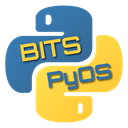Uncovering the Best Linux Kernel Alternatives for Your System
The Linux kernel is the foundational operating system kernel powering countless Unix-like systems globally, known for its robustness and open-source nature. However, for various reasons – from specific hardware compatibility to a desire for different philosophies in design or security – users often seek out compelling Linux kernel alternative options. This article dives into some of the most notable alternatives available today, offering insights into what makes them unique and why they might be the perfect fit for your next project or daily driver.
Top Linux Kernel Alternatives
Whether you're a developer, a system administrator, or just curious about what else is out there, exploring these alternatives can open up new possibilities and provide fresh perspectives on operating system design.

FreeBSD
FreeBSD is an advanced operating system built on the BSD branch, serving as a powerful Linux kernel alternative for x86 and amd64 compatible systems, including ARM support. It's a free, open-source, and self-hosted platform known for its stability and features like package control and a Unix-like environment, making it a solid choice for those seeking a robust, geeky, and reliable OS.

OpenBSD
OpenBSD is a FREE, multi-platform 4.4BSD-based UNIX-like operating system that stands out as a strong Linux kernel alternative, particularly for its emphasis on portability, standardization, correctness, and proactive security. As an open-source BSD project, it boasts features like being ad-free, customizable, FOSS, no tracking, and strong security & privacy focus, making it ideal for security-conscious users.

Linux-libre
Linux-libre is a GNU package maintained from modified versions of the Linux kernel itself, making it a unique Linux kernel alternative for those strictly adhering to free software principles. It's a free, open-source Linux platform with the specific aim of removing any software that doesn't include its source code or that contains non-free firmware blobs, adhering to GPLv3.

GNU Hurd
GNU Hurd, often simply referred to as the Hurd, is a computer operating system kernel designed as a free software replacement for Unix, released under the GNU General Public License. This open-source Linux platform offers a distinct architectural approach as a Linux kernel alternative, focusing on a set of servers that run on a microkernel (Mach) to provide kernel functionality.

Redox
Redox is a Unix-like Operating System written entirely in Rust, aiming to bring the innovations of Rust to a modern microkernel and full set of applications. As a free and open-source Linux platform, Redox provides a cutting-edge Linux kernel alternative for developers and enthusiasts interested in a secure, memory-safe, and high-performance operating system written from scratch.

MINIX 3
MINIX 3 is a free, open-source operating system designed with an emphasis on high reliability, flexibility, and security, making it a compelling Linux kernel alternative. Available across Mac, Windows, Linux, and BSD platforms, it's self-hosted and features ARM support, embeddability, and a Unix-like structure, making it particularly suitable for education and systems requiring high stability.

PureDarwin
PureDarwin is a community project dedicated to making Darwin, Apple's open-source operating system that forms the basis for Mac OS X, more usable. As a free and open-source Mac platform, PureDarwin serves as an intriguing Linux kernel alternative for those interested in the underlying technology of macOS, providing an operating system for experimentation and development.

BITS-PyOS
BITS-PyOS, meaning BIOS Implementation Test Suite-based Python Operating System, is a custom version of GRUB2 that integrates a Python-based OS. This unique open-source operating system, available across Mac, Windows, Linux, and Chrome OS, offers a fascinating and distinct Linux kernel alternative for developers and enthusiasts looking for a highly customizable and scriptable environment centered around Python.

NomadBSD
NomadBSD is a persistent live system designed for USB flash drives, based on FreeBSD. With automatic hardware detection and setup, this free and open-source BSD platform presents a convenient and portable Linux kernel alternative for users who want to carry their operating system with them, offering the power and stability of FreeBSD in a mobile format.
Each of these Linux kernel alternative options offers a unique set of advantages, from enhanced security and specific architectural designs to different philosophies in software freedom. We encourage you to explore these diverse choices to find the best fit for your specific technical requirements and personal preferences.